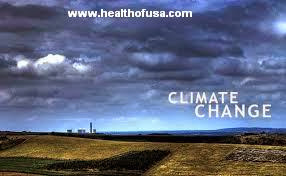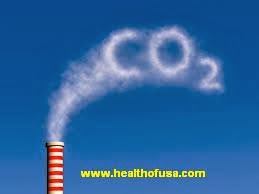Climate Change and Its Impacts on Health
Key facts
Climate change affects the social and ecological determinants of health.
It changes air, drinking water and many food resources. Universal warming that
has occurred since the 1970s caused more than 145 000 deaths per annum by the
year 2012.
The direct damage costs to health in different sectors such as agriculture
and water and sanitation, is predicted to be between US$ 2-4 billion/year by
2030.
Many of the major deceases such
as diarrhoeal diseases, malnutrition, malaria and dengue are highly
climate-sensitive and are expected to worsen as the climate changes.
Climate change
In the last 50 years, human activities specially the burning of fossil
fuels have released sufficient quantities of carbon dioxide and other
greenhouse gases to entrap supplementary heat in the lower atmosphere and
affect the universal climate.
Around last 100 years, the world has warmed by approximately 0.75oC.
Over the last 25 years, the rate of global warming has exceeded, at over 0.18oC
per decade.
Sea levels are expanding, glaciers are melting and rain schedules are
changing. Extreme weather events are becoming more concentrated and frequent.
What is the impact of climate change on health?
Global warming may bring some localized benefits perhaps, such as fewer
winter deaths in temperate climates and increased food production in certain
areas, the overall health effects of a changing climate are likely to be
overwhelmingly negative.
Intense high air temperatures contribute directly to deceases from
cardiovascular and respiratory disease, especially between aged people. More than 70,000 deaths were recorded due to
heat wave of summer 2003 in Europe .
High temperatures also elevate
the levels of ozone and other pollutants in the air.Urban air pollution cause
about 1.2 million deaths annually.
The number of reported weather related natural disasters has more than
tripled since the 1960s. These disasters cause of over 60 000 deaths every year,
mostly in rising countries.
Increasing of commonly sea levels and growing extreme weather events
will destroy homes, medical facilities and other essential services. More than
half of the world's people lives within 60 km of the sea. People may be forced
to move due to this risky climate change.
Increasingly variable precipitation patterns are likely to affect the provider
of fresh water. A lack of safe water can cause of many executioner disease,
which kills 2.2 million people annually. In extreme cases, water lack directs
to drought and famine. By the 2090s, climate change is likely to widen the area
affected by drought, double the frequency of extreme droughts and increase their
average duration six-fold.
Floods are also generating numbers of deaths from the global and it is
also cause of climate change. Floods infect freshwater supplies, increase the
risk of water borne diseases, and create reproduction grounds for disease carrying
insects such as mosquitoes. They also cause drowning and physical injuries,
damage homes and interrupt the provider of medical and health services.
Rising temperatures and variable rainfall are likely to reduce the
production of staple foods in many of the poorest areas by up to 50% by 2020 in
some African countries. Changes in climate are likely to elongate the communication
seasons of important vector borne diseases and to alter their geographic range.
Malaria is sturdily predisposed by climate. Transmitted by Anopheles
mosquitoes, malaria cause death of almost 1 million people every year generally
in African children under five years old. The Aide mosquito vector of dengue is
also highly sensitive to climate conditions. Studies suggest that climate
change could expose an additional 2 billion people to dengue transmission by
the 2080s6.
Who is at risk?
All populations will be affected by changes of climate, but some are
more defenseless than others. People are living in small islands rising states
and other coastal regions, mega cities, and precipitous and glacial regions are
particularly vulnerable.
Changes of climate affect the children because children skins have not
antibiotic features and their skins have not strong features for face the
changes of atmosphere. The health effects are also expected to be more severe
for elderly people and people with infirmities or pre-existing medical
conditions.
World Health Organization’s response
Many policies and personnel options have the possible to reduce
greenhouse gas emission and produce major health co-benefits. For example, encouraging
the safe use of public transportation and active movement such as cycling or
walking as alternatives to using private vehicles – could reduce carbon dioxide
emissions and improve health.
The World Health Assembly sanctioned a new WHO work plan on climate
change and health in 2009. This contains:
Advocacy: to raise alertness that climate change is
a elementary threat to human health.
Partnerships: to coordinate with partner agencies
within the UN system, and ensure that health is properly represented in the
climate change agenda.
Science and evidence: to coordinate analysis of the scientific
evidence on the links between climate change and health, and develop a global
research agenda.
Health system strengthening: to assist
countries to assess their health vulnerabilities and build capacity to reduce
health vulnerability to climate change.
Climate Change and Its Impacts on Health
 Reviewed by Amir Lateef
on
05:36
Rating:
Reviewed by Amir Lateef
on
05:36
Rating:
 Reviewed by Amir Lateef
on
05:36
Rating:
Reviewed by Amir Lateef
on
05:36
Rating:





No comments: